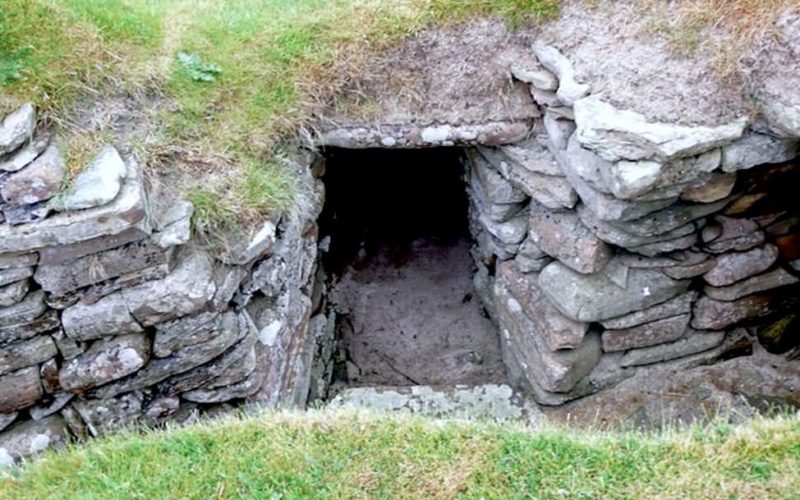We all love history, right? Well, ladies and gentlemen, history can sometimes seem a little dry and boring, but sometimes amazing things are discovered that we can’t help being fascinated by. This is one such discovery. By a small creek, embedded and hidden among the green hills, there is a well tucked away secretly. It may not seem particularly impressive at first, but one step inside and you will be amazed at what you see.
According to the experts, 1000 years ago, this was a very important place. Unfortunately, it was later lost and buried under the sand. Nobody had a clue that this place ever existed, but when a terrible storm swept across in 1850, the amazing secret was revealed. In these hills, lies a secret that is older than the great pyramids in Egypt. At first it may not look liked much to the outside world, but the fact is that this place is unique. Just on this green hillside, there is a very old underground city, perfectly preserved. The prehistoric settlement is called Skara Brae.
The settlement consists of eight stone houses and is estimated to be have been inhabited between 3180 and 2500 BC. Skara Brae is thus one of the oldest agricultural villages in Britain. Because the surrounding sand and the architecture of the buildings are well protected from cold, both the buildings and their contents have been remarkably preserved over the millennia.
Archaeologists estimate that around 50-100 people lived in the village. Once the settlement was built, the houses were 1500 meters from the sea. Around the houses lay suitable pastures for the settlement. Now the sea has carved its way closer to the village and created a magnificent view. In each room there is always one bed that is bigger than the others, but nobody is sure why. Each room also has lockers, bureaus, seats and storage boxes. In the village there was also a sewage system and each house had its own, simple toilet. Some believe the villagers were poets, a people of unknown origin who settled during the final stages of the British Iron Age. But archaeological finds have shown that the people who lived here may have been far older than that.











